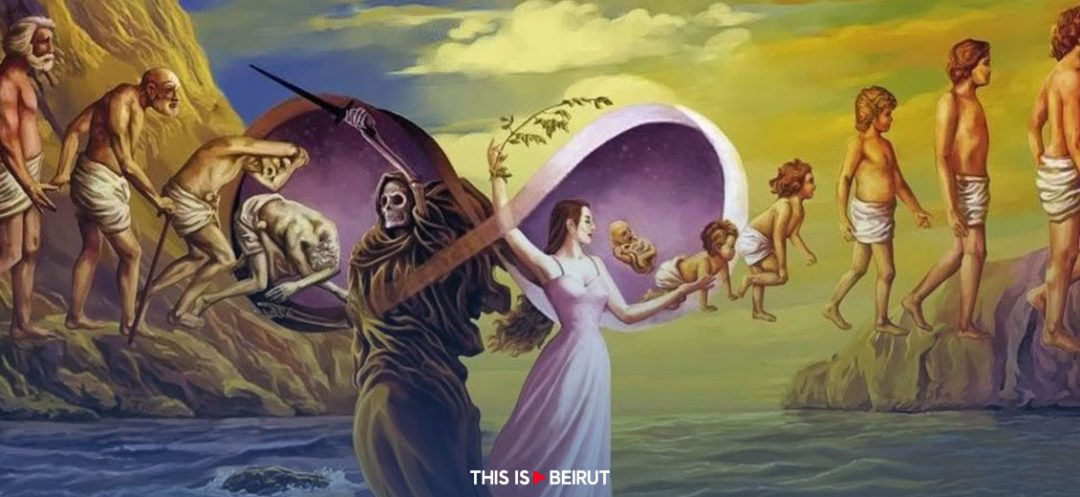Listen to the article
Every week, we invite you to explore a striking quote from a great psychoanalyst to reveal all its depth and richness. These lapidary, often provocative formulas open up new perspectives on the intricacies of the human psyche. By deciphering these quotes with rigor and pedagogy, we invite you on a fascinating journey to the heart of psychoanalytic thought to better understand our desires, anxieties and relationships with others. Ready to dive into the deep waters of the unconscious?
Sigmund Freud invites us to deep reflection with his quote: “If you want to be able to endure life, be prepared to accept death!” For the psychoanalyst, death is at the very heart of psychic life. In Beyond the Pleasure Principle, he introduces the concept of the death drive. According to him, in every human being, there is a fundamental tendency to return to a previous, inorganic state, which opposes the life drives (Eros). This death drive (Thanatos) manifests as a compulsion for repetition, a tendency towards the destruction of oneself and others. These drives are present from the beginning of life: our birth marks the start of the journey towards death. By accepting this reality, we can fully live our existence.
With his quote, Freud encourages us to confront death, to verbalize it, and not to hide it from ourselves or others, including our children, as is often the case in our culture. Accepting death is primarily about accepting this shadowy part within us, this force that pushes us toward nothingness. It’s recognizing that we are inhabited by contradictory drives, that our psyche is the stage for a perpetual conflict between Eros and Thanatos. By refusing to see this reality, we condemn ourselves to live in an illusion, that is, in denial of our vulnerability and our own finitude.
Therefore, one cannot detach death from life and consequently from desire, conceived not as a need to be satisfied, but as this indestructible thing buried in our unconscious. It is because we are beings of desire that we confront death since there is desire only on a background of loss, lack, separation from the first object of our love. And this foundational experience of loss introduces death into our psychic life, making us aware of our human fragility and mortality.
Accepting death, then, is also accepting loss, lack, symbolic castration. It means renouncing the illusion of omnipotence, the belief in our immortality. It means mourning the lost object, the original completeness, to access our own desire, our subjectivity. Accepting death is, very early on, undertaking to navigate through suffering and loss to be able to reinvest in life. It means renouncing the domination of fantasy to open up to the reality of the other, to the encounter with alterity.
Otherwise, the refusal of death can take pathological forms, such as melancholia or mania. The melancholic, unable to mourn the lost object, identifies with it and turns against themselves the hatred they bore it. The maniac, on the other hand, denies the loss and death by surrendering to unrestrained pleasure, by denying any limits.
In turn, Jacques Lacan, with his return to Freud, placed death at the heart of his theory of the subject. For him, the subject is born from the encounter with the symbolic, with the language that divides and determines it. But this encounter is also an encounter with death, because the signifier carries a radical negativity, a lack of being that inhabits the subject. Accepting death, then, is accepting this subjective division, this gap that constitutes us. It’s renouncing the illusion of a strong and autonomous Self to assume our dependence on the Other, on the Other’s desire. It’s mourning the unique to access the dimension of two, of alterity, of difference, of symbolic castration. We are “speaking beings,” says Lacan, beings of language, thus desiring and mortal subjects, determined by our unconscious drives.
So, if we truly want to endure life, if we want to be free and responsible for our desire, we must accept death as a structural element of our existence, we must navigate through fantasy to open ourselves to the contingency of the real, to the always singular encounter with the other. Paradoxically, by accepting our finiteness and our lack of being, we can access our most intimate desire, what makes us unique and irreplaceable subjects. And by taking this step towards the unknown, we can hope for a more authentic and more intense life.
Yet, what do we observe around the world? The cult of frenzied, addictive consumption that society offers as a way to escape the reality of death, engaging in compulsive shopping with the illusion of being, in this way, alive and happy. The pursuit of immediate pleasure, constant distractions serving as avoidance mechanisms in the face of existential angst. The denial of the existence of the death drive by focusing only on the “positive.” Some call this resilience!
Degradation of our environment and destruction of our planet: what is it if not giving free rein to the work of the death drive?
Near us, a war does not cease to terrify us, a war where the opponent is dehumanized, identified as being less human than the attacker. Every war is the ultimate manifestation of the death drive: it carries in its essence the destruction not only of the other, but of oneself, of one’s own humanity.
So, let us dare to look death in the face, let us dare to tame it with the tools that psychoanalysis offers us. Because by doing this work on ourselves, we can truly feel alive, free, creative and human.





